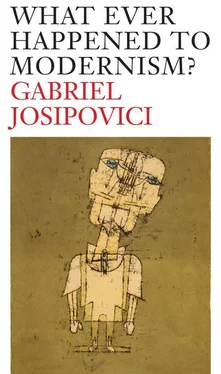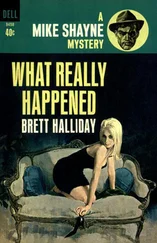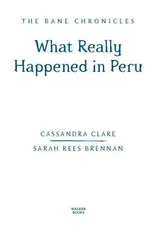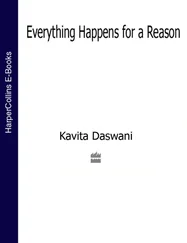Writers of course only do what they can. They instinctively sense, or quite soon work out, what they can and can't do, and what they want and do not want to do (the two are not always the same). Even Dickens, that most self-assured of novelists, provides, in The Pickwick Papers , a fascinating glimpse into all the directions in which he thought for a moment he might go but in the end decided (not consciously, I'm sure) not to explore. Don Quixote hovers over the whole book of course, as it does not over later Dickens, and in Chapter 11 we even find him flirting with two of Poe's favourite genres, Gothic horror (the inset story of the madman's confessions) and the decipherment by the rational mind of a mysterious inscription. His comic take on the latter is evidence both of the English novel's robust common sense, its refusal to be taken in by the pseudo-profound, and of Dickens' rueful acknowledgement that the direction of Poe, Hawthorne and Melville can never be his. But if writers do what they are drawn to do, critics and cultural analysts need to do a little better. It is not Powell, Wilson and Murdoch, not our current Booker and Nobel Prize winners who give cause for concern, but the cultural climate that cannot see the difference between them and those writers who, in Kierkegaard's terms, sense vividly what is lacking and then endeavour to convey a sense of this lack, between works that illustrate and works that live.
An interesting example of our current confusions is the reception recently accorded to Irène Némirovsky's Suite Française . Némirovsky was a Russian-born Jew living in France who wrote in French. The book was written in 1941–2, shortly before its author was deported and murdered. The manuscript surfaced in the early 1990s (it had been lying in her daughter's trunk all the time) and was published to some acclaim in France, but to nothing like the rapturous reception it received in Britain. Doris Lessing and the journalist Robert Fisk compared it to Tolstoy, and Victoria Glendinning, the distinguished biographer, described it as one of the most significant books of the last century.
The first part deals with the fall of France in May 1940 and the subsequent exodus from Paris. Here is an extract from the first pages:
In the Péricand household they listened in shocked silence to the evening news on the radio, but no one passed comment on the latest developments. The Péricands were a cultivated family; their traditions, their way of thinking, their middle-class, Catholic background, their ties with the Church (their eldest son Philippe Péricand was a priest), all these things made them mistrustful of the government of France. On the other hand Monsieur Péricand's position as curator of one of the country's national museums bound them to an administration that showered its faithful with honours and financial rewards.
A cat held a little piece of bony fish tentatively between its sharp teeth, he was afraid to swallow, but he couldn't bring himself to spit it out either.
Madame Péricand finally decided that only a male mind could explain with clarity such strange, serious events.
Némirovsky was a popular novelist of the day and she uses the clichés of the middlebrow novel without embarrassment, quickly filling in the background and sketching in her chosen representative family with the minimum of fuss, then cutting to the cat so as to convey the sense of ordinary life going on regardless of the great events that are unfolding. ‘The Péricands were’, ‘a cat held’ — we remember how Proust felt the chill of death enveloping him when he came across such a use of the past tense in Sainte-Beuve and elsewhere. A story is told and, as in the English extracts above, everything is done to make sure the inventing author is concealed, but the work lies inert on the page, without any life of its own.
The very poignancy of what happened in France in those days in May 1940 makes such stale narrative retellings all the more grotesque. Will it get better when we reach the actual fighting?
‘This is a disaster,’ thought Hubert with a sigh. ‘This is defeat! I am here, watching an enormous defeat, worse than Waterloo. We are all lost. I'll never see Mother or any of my family again. I'm going to die.’ He felt doomed, numb to everything around him, in a terrible state of exhaustion and despair. He didn't hear the order to retreat. He saw men running through the machine-gun fire. Rushing forward, he climbed over a wall into a garden where a baby's pram still stood in the shade. The battle wasn't over. Without tanks, without weapons, without ammunition, they were still trying to defend a few square metres of ground, a bridgehead, while from all directions the German conquerors were sweeping through France.
Though utter chaos is being described, the collapse of a world, Hubert has time to talk to himself in cadenced phrases, to draw comparisons from history. And notice how the baby's pram is conveniently waiting ‘in the shade’ to make the same sort of point as was made by the description of the cat in the first extract. This is run-of-the-mill middlebrow narrative, given poignancy by the subsequent history of its author and of the manuscript itself. It is this, I feel, that has allowed commentators, who secretly warm to this kind of writing but don't quite dare admit it, to grow ecstatic about the book with a clear conscience: the events it describes were terrible and dramatic, the author's fate was tragic, the fate of the manuscript miraculous, so it must be a great book. Contrast (even in my clumsy translation) a real writer tackling the same subject, Claude Simon's attempt to convey what was engulfing France and its army in that same moment of May 1940, seen through the eyes of a cavalry officer still, unbelievable as it might appear, as in 1914, astride a horse, in the face of the armoured onslaught of the Germans. Through the eyes, though, is wrong, itself a cliché: part of the power of Simon's novel comes from the fact that it is an anguished monologue as the narrator tries to explain to the woman in whose bed he is lying, and to explain to himself, what had just happened:
on this road which was nothing but a death-trap, that is, not war but murder pure and simple, a place where they cut you down before you could say ouch, the snipers calmly installed behind a hedge or a bush and taking all the time in the world to get you into their sights, in short a bloody shooting-gallery … which did not stop him from always holding himself stiff and upright in his saddle, as upright as though he'd been reviewing a march past at a 14 July parade and not in the middle of a retreat or rather a rout or rather a disaster in the midst of this kind of decomposition of everything as though not simply an army but the world itself in its entirety and not just its physical reality but the image the mind can make of it (but perhaps it was also the lack of sleep, the fact that for ten days we had practically not slept except in the saddle) … two or three times someone shouted out to him not to go on (how many I don't know, nor who they were: the wounded I imagine, or men hidden in the houses or in the ditch, or perhaps civilians who doggedly went on wandering about in incomprehensible fashion, dragging a battered suitcase after them or pushing one of those children's perambulators filled with vague belongings (not really belongings: just things, useless objects, simply no doubt so as not to wander empty-handed, having the illusion of taking with them, of possessing anything so long as it was personal: a torn pillow or an umbrella or the colour photograph of the grandparents — and so had the arbitrary notion of price, of treasure attached to it) as though what mattered was simply to walk, no matter in what direction…)
My instinct is to say: the difference between the two descriptions is not one of degree but of kind. It is not that Némirovsky is a lesser novelist than Simon, but that she is simply unaware of the inappropriateness of what she is doing, and one has to say that by her writing she makes ‘a written renunciation to all claim to be an author’. Or is this too apocalyptic? Is it simply that she is less good, less aware of what can and cannot be done, less aware of just what it is she wants to convey and therefore of the need to forge a style that will answer to that need?
Читать дальше












